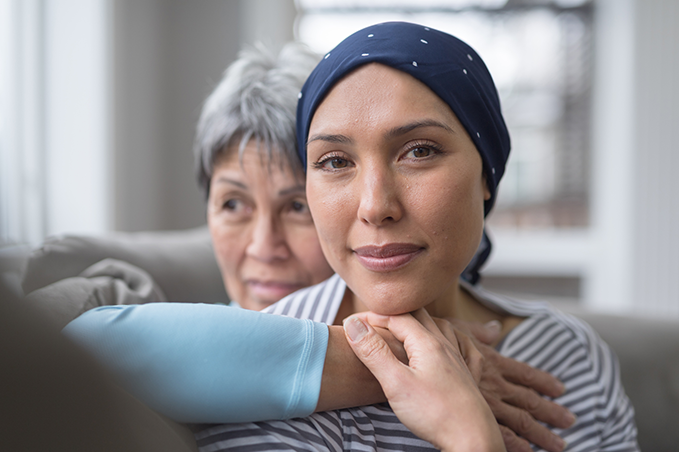From the Mummers Parade to her Inspira care team, Christina Camuccio found strength in every note of...
Read MoreWinter Weather Update: Some of our locations are closed or have delayed openings Monday, February 23rd. View the full list of status updates here.


Though cancer is a genetic disease, it is not always an inherited condition. Hereditary cancers account for only 10 percent of all cancers. Here’s what to know about understanding your cancer risk.
Cancer begins when genetic mutations occur and prevent our cells from functioning normally.
“Genes are small sections of DNA in our cells that our body uses as instructions to create proteins—which regulate our bodily functions. Cells constantly die, but they are replaced by new ones thanks to a process called mitosis—when the cell duplicates its DNA and divides into a genetically identical cell, ” said Nandini Kulkarni, M.D., a fellowship-trained, double board certified, surgical oncologist and Medical Director of Surgical Oncology for Inspira Health. “However, mutations occur when DNA is read and cloned incorrectly.”
According to the National Cancer Institute, genetic mutations in specific genes are linked to more than 50 hereditary cancers, such as breast, ovarian, prostate, colon and pancreatic cancers.
“If an individual’s cancer is caused by gene mutations or expression, then those genes can be passed down to their children just like any other trait (e.g., hair color, eye color, etc.),” said Dr. Kulkarni. Examples of genes associated with hereditary cancers include:
“Inspira Insight, a short screening questionnaire allows us to assess your risk for hereditary cancers. Our team is specially trained in genetics and will work with you and your health care provider to determine if genetic testing is right for you. Though genetic testing cannot identify every cancer-causing mutation, it is a great resource for those concerned about their cancer risks,” said Dr. Kulkarni.
Genetic testing involves taking a sample of your DNA, usually a blood or tissue sample, and sending it to a lab to be evaluated. Here, experts look for specific inherited mutations in someone’s genes. The benefit of genetic testing is that if you have a positive result, you can make the appropriate lifestyle changes to decrease your risk.
“Though a positive test result means you have a genetic mutation linked to an inherited cancer, it does not necessarily mean you have cancer. It may simply indicate that you have an increased risk of developing this cancer,” said Dr. Kulkarni. “Genetic testing can also benefit your family members who are unaware of their own risk profiles. This is especially useful if you have had cancer.”
You may want to consider genetic testing or counseling if you:
Read more about Inspira’s approach to genetic testing and counseling or learn about Inspira’s High Risk Cancer Surveillance Program.

From the Mummers Parade to her Inspira care team, Christina Camuccio found strength in every note of...
Read More
Prostate cancer is the second most common cancer in men. While metastatic disease can feel daunting...
Read More
Explore the unique challenges and essential screening strategies for individuals with dense breast...
Read More